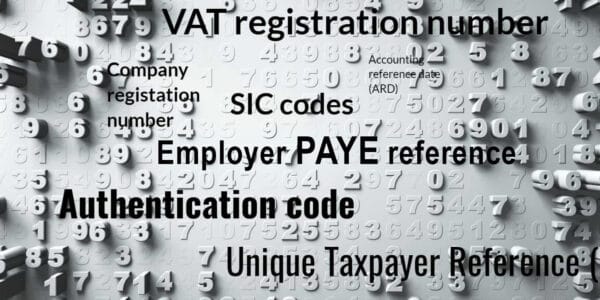To simplify reporting requirements for SMEs, the UK Government is planning to increase company size thresholds by 50% from 1 October 2024. This measure is expected to benefit around 132,000 UK companies, by freeing them from burdensome non-financial reporting requirements.
We discuss the changes to company size thresholds for statutory reporting in more detail below, as well as additional proposals on regulatory reporting due for consultation later in the year.
Proposed changes to company size thresholds from October 2024
On 18 March 2024, the Government announced a package of measures designed to ease the regulatory burden and complexity of financial and non-financial reporting for UK businesses.
One such measure is an uplift to the monetary thresholds that determine a company’s size for corporate reporting, as set out in the Companies Act 2006.
To take account of inflation, the Government intends to increase these thresholds by 50%, which will impact the number of companies qualifying as micro-entity, small, medium-sized, and large.
The current thresholds, which apply to accounting periods beginning on or after 1 January 2016, are as follows:
| Micro-entity | Small company | Medium company | Large company | |
| Annual turnover | Not more than £632,000 | Not more than £10.2m | Not more than £36m | More than £36m |
| Balance sheet total | Not more than £316,000 | Not more than £5.1m | Not more than £18m | More than £18m |
| Average no. of employees | Not more than 10 | Not more than 50 | Not more than 250 | More than 250 |
If the Government goes ahead with the changes as expected, the new thresholds for accounting periods beginning on or after 1 October 2024 will be as follows:
| Micro-entity | Small company | Medium company | Large company | |
| Annual turnover | Not more than £1m | Not more than £15m | Not more than £54m | More than £54m |
| Balance sheet total | Not more than £500,000 | Not more than £7.5m | Not more than £27m | More than £27m |
| Average no. of employees | Not more than 10 | Not more than 50 | Not more than 250 | More than 250 |
As a result of increasing the monetary thresholds, approximately 132,000 UK companies will no longer be subject to onerous form-filling and non-financial statutory reporting requirements. Specifically, it will mean that:
- around 113,000 small companies will move into the micro-entity reporting regime, allowing them to prepare simpler (abridged) annual accounts
- approximately 13,000 medium-sized companies will be reclassified as small companies, enabling them to file simplified accounts and potentially benefit from audit exemption
- around 5,000 large companies will become medium-sized companies and enjoy access to more proportionate reporting requirements
Dr Nigel Sleigh-Johnson, ICAEW’s Director of Audit and Corporate Reporting, said: “While there is much more to do, updating the company size thresholds for reporting set out in the Companies Act 2006 is an important first step towards a modernised model for UK corporate reporting.”
Audit exemption threshold
The thresholds for audit exemption for private limited companies, as set out in section 477 of the Companies Act 2006, correspond with the small company thresholds in section 382 of the same Act. Therefore, the audit exemption monetary thresholds will increase accordingly when the changes are introduced.
This means that, from 1 October 2024, companies may qualify for an audit exemption if they satisfy at least two of the following conditions:
- an annual turnover of no more than £15 million
- assets worth no more than £7.5 million
- an average number of employees of 50 or fewer
As mentioned previously, 13,000 more UK companies may be eligible for audit exemption once the government implements the threshold changes.
Additional proposals for 2024
To remove overlapping reporting requirements, the Government intends to amend the information that companies must include in their annual directors’ reports and directors’ remuneration reports. Changes will also be introduced to make it easier for companies to provide digital annual reports instead of paper copies.
Further consultations on additional changes will be carried out later in the year, including exempting medium-sized firms from producing strategic reports, as well as raising the employee threshold for medium-sized companies from 250 to 500 employees. The latter measure would result in around 1,000 more large companies becoming SMEs.
Commenting on these proposed changes, Sally Baker, ICAEW’s Head of Corporate Reporting Strategy, said: “[The] announcement importantly removes and rationalises some of the content in the Directors’ Report and Strategic Report – a positive step towards a more streamlined reporting regime.”
Combined, the new measures are expected to provide deregulatory cost-savings of around £150 million per year to UK companies, with small and medium-sized companies benefitting by approximately £145 million per year.
When will the changes to company size thresholds take effect?
The exact dates for the implementation of these measures have yet to be confirmed. However, it is expected that changes to company size thresholds will take effect from 1 October 2024. The Government intends to lay out the necessary legislation this summer.
We will provide further information on all of these regulatory changes as it becomes available.
Thanks for reading
As a company director, you will need to consider the potential impact of these changes on your reporting and audit requirements. If you have any concerns, we would advise speaking to your accountant.
Explore the Quality Company Formations Blog for more company guidance and small business news.
Please note that the information provided in this article is for general informational purposes only and does not constitute legal, tax, or professional advice. While our aim is that the content is accurate and up to date, it should not be relied upon as a substitute for tailored advice from qualified professionals. We strongly recommend that you seek independent legal and tax advice specific to your circumstances before acting on any information contained in this article. We accept no responsibility or liability for any loss or damage that may result from your reliance on the information provided in this article. Use of the information contained in this article is entirely at your own risk.








Join The Discussion
Comments (4)
Excellent article! This company size threshold knowledge for the UK seem useful for my own business tax services UK.
Thank you for sharing your thoughts with us!
It’s always great to hear from our readers, and your feedback motivates us to keep creating great content.
Kind regards,
The QCF Team
This is great news! :)
Thank you for your kind comment, Amelia.
Kind regards,
The QCF Team